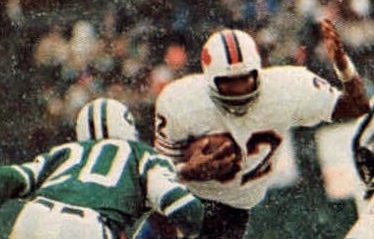








O.J. Simpson's legacy is a tapestry woven from threads of sports heroism, legal drama, and cultural controversy. This article delves into the multifaceted life of O.J. Simpson, exploring how his infamous trials and public persona have shaped both his legacy and societal conversations about race, celebrity, and justice in America.
The Rise of a Sports Icon
-
Early Life and Football Career: Born on July 9, 1947, in San Francisco, California, O.J. Simpson showcased athletic prowess from a young age. He gained fame playing college football at the University of Southern California (USC), winning the Heisman Trophy in 1968.
-
NFL Stardom: Drafted first overall by the Buffalo Bills in 1969, Simpson became a trailblazer in the NFL, becoming the first player to rush for over 2,000 yards in a single season in 1973. His on-field achievements earned him a place in the Pro Football Hall of Fame in 1985, cementing his status as a sports legend.
Transition to Hollywood
-
Acting Career: After retiring from football, Simpson transitioned into acting, appearing in films such as "The Naked Gun" series and various television shows. His charisma and charm allowed him to become a recognizable face in Hollywood, further enhancing his celebrity status.
-
Public Persona: Simpson was often depicted as America's "Everyman"—a charming, relatable figure who broke racial barriers in sports and entertainment. This image, however, would be challenged in the years to come.
The Murders of Nicole Brown Simpson and Ron Goldman
-
The Tragic Events: On June 12, 1994, Nicole Brown Simpson and her friend Ron Goldman were found murdered outside Brown's home in Los Angeles. The news shocked the nation and set the stage for a media frenzy.
-
Initial Reactions: The case garnered intense media coverage, with Simpson quickly emerging as the primary suspect. The public was captivated by the unfolding drama, which would lead to one of the most famous police chases in history.
The Trial of the Century
-
The Bronco Chase: On June 17, 1994, Simpson led police on a slow-speed chase in a white Ford Bronco, a scene broadcast live on television. This event became a cultural phenomenon, symbolizing the media's obsession with celebrity and crime.
-
The Trial: The trial began in January 1995 and was marked by sensationalism and polarizing moments, including the infamous "If it doesn't fit, you must acquit" defense by attorney Johnny Cochran. The trial highlighted issues of race, domestic violence, and legal ethics, making it a significant moment in American history.
-
Verdict: On October 3, 1995, Simpson was acquitted of all criminal charges. The verdict was met with mixed reactions across racial lines, igniting debates about justice, race relations, and the legal system in the United States.
The Civil Trial and Financial Consequences
-
Civil Liability: In 1997, Simpson faced a civil trial for wrongful death and was found liable, resulting in a judgment of $33.5 million in damages awarded to the families of Brown and Goldman. This verdict further complicated his public image, as he struggled with the financial repercussions.
-
Bankruptcy and Legal Troubles: Despite his fame, Simpson faced ongoing financial difficulties, leading to bankruptcy proceedings. His financial woes continued with various legal battles, including disputes over his NFL pension and the sale of memorabilia.
The Return to the Spotlight
-
2007 Arrest: Simpson’s legal challenges continued, culminating in an arrest in 2007 for armed robbery and kidnapping in Las Vegas. He was sentenced to 33 years in prison in 2008, serving nine years before being released on parole in 2017.
-
Public Perception Post-Prison: Since his release, Simpson has attempted to rebuild his public image, engaging with fans on social media and participating in various interviews. His controversial history continues to elicit strong reactions, revealing the deep divisions in public opinion about his legacy.
Cultural Impact and Legacy
-
Media Influence: The Simpson trials transformed the landscape of media coverage of trials, leading to a new era of sensationalized reporting. The term "trial of the century" became synonymous with the Simpson case, influencing how legal cases are covered in the media.
-
Racial Conversations: Simpson’s trials opened a dialogue about race in America, particularly in the context of celebrity culture and the justice system. His case became a lens through which many examined the complexities of race relations in the U.S.
-
Portrayals in Film and Television: The story of O.J. Simpson has been adapted in various media, including the acclaimed FX series "The People v. O.J. Simpson: American Crime Story," which has contributed to renewed interest in his life and the societal implications of his trials.
Conclusion: A Legacy of Complexity
O.J. Simpson's legacy is one of contradictions—he is both a celebrated sports hero and a figure entwined in one of the most controversial criminal cases in American history. His life story serves as a powerful reminder of the intersections between race, fame, and justice, prompting ongoing discussions about societal values and the role of media in shaping public perception. As we reflect on his impact, it is essential to understand the broader implications of his life and the ways in which it continues to resonate in contemporary conversations.
